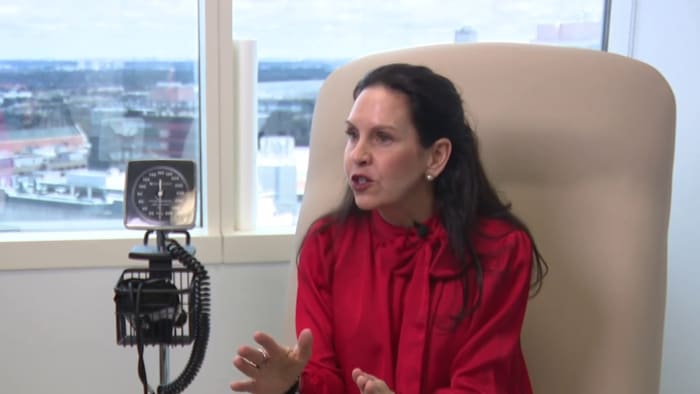Keri Sprung is employed at the Texas Heart Institute, where she serves as the Vice President for Education. Despite her involvement in researching and authoring papers on Spontaneous Coronary Artery Dissection (SCAD), she failed to recognize the symptoms when they manifested in herself.
She described experiencing peculiar sensations in her ear, synchronized with her heartbeat, which persisted around the clock, disrupting her sleep and causing intense headaches, neck tension, and occasional vertigo. Initially attributing these issues to stress and poor sleep, it wasn’t until she casually mentioned them to colleagues that the underlying problem was uncovered.
Upon examination by Dr. Stephanie Coulter, the Medical Director at The Texas Heart Institute, it was revealed that Sprung had a significant carotid artery dissection located within her skull, a challenging area to address. Despite initial tests indicating normalcy due to the internal location of the issue, Dr. Coulter persisted in investigating further.
Dr. Coulter highlighted that the carotid artery dissection experienced by Keri was likely triggered by her previous COVID infection, as the inflammatory nature of the virus can affect arterial walls, potentially leading to severe complications such as strokes or ruptures. Dr. Zvonimir Krajcer, an Interventional Cardiologist at The Texas Heart Institute Center for Cardiovascular Care, emphasized the critical nature of the condition, noting its rarity and the potential life-threatening risks associated with it.
Following the diagnosis, Keri underwent a procedure to insert a stent into her nearly blocked artery, mitigating the risk of stroke and fatality. Reflecting on her experience, she emphasized the importance of vocalizing any unusual symptoms and changes in health to prompt timely and accurate medical intervention.
Dr. Coulter expressed the institute’s commitment to enhancing patient care and research in SCAD and Fibromuscular Dysplasia (FMD), underscoring their participation in a national registry for these conditions to better serve the community.
Dr. Krajcer recommended specific tests for individuals at risk of SCAD, including those with a family history, individuals with FMD, and those with elevated blood pressure, which can compromise arterial integrity.
